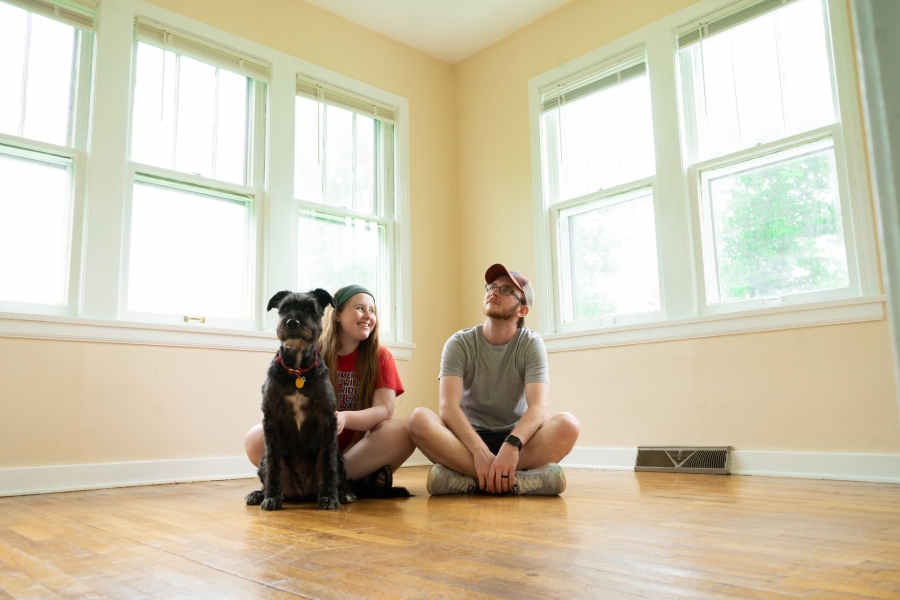If you’re considering the purchase of a home, you have one big decision to make as you get started, to narrow down your search. You have to decide whether you’ll buy a new home or an existing property. There are pros and cons to each, and you have to weigh them carefully during the decision-making process.
It used to be at one point that buying a new house was almost always going to be more expensive than an older house. Buying materials for new construction is less expensive now than in the past, so price alone isn’t necessarily a determinant or at least the primary determinant for many people.
What Are the Upsides of Buying an Older House?
Some of the benefits of buying an existing, older home might include:
• More high-quality or detailed construction: This isn’t to say that new homes can’t be well-built, but older homes often have an attention to detail that is harder to find in something newer. There was a sense of craftsmanship utilized in the building of these homes that was often a point of pride for the people working on them and living in them.
• Bigger yards: In the past, land was cheaper, so many older homes will as a result have a bigger yard.
• Character: You may prefer the character and charm of an older home.
• Established neighborhoods: Neighborhoods with a lot of new homes don’t have as many trees, and they do go through some growing pains. An established neighborhood may be more beautiful with towering trees and mature shrubbery.
• More walkability: In an older neighborhood, you’re likely going to find that you have more walkability, and neighborhoods with older houses tend to be closer to city centers, as opposed to newer houses which tend to go further and further out from cities as part of suburban sprawl.
What About the Downsides of an Older Home?
Buying an older home isn’t all about the dreamy craftsmanship and charm. There are some very real downsides you have to think about. Examples include:
• Smaller spaces: Older homes may have more rooms and are less likely to have an open-concept floorplan. Many of the spaces in an older home are going to be smaller than what we see now. For example, there may be smaller garages and closets, and it can be tough to remedy this issue.
• Maintenance: If you want a low-maintenance home, it’s pretty unlikely you’ll find that with older construction. For example, you might find that tree roots disrupt your sewer pipes, or you have issues with your foundation.
• Updates: You may need to update an older home in addition to the regular maintenance. For example, you might have to remodel the kitchen or the bathrooms to make the home truly functional for your needs.
What Are the Pros and Cons of New Construction?
If you go with new construction, some of the benefits include the lack of maintenance you’re likely going to need to worry about, as well as the fact that these homes come with modern features that make life easier. For example, a new construction home is probably going to have a built-in dishwasher, wiring for electronics and even features like wine coolers.
Some new construction homes even come with a builder’s warranty. For example, if you’re buying in California, the builder is required to provide a 10-year warranty.
Newer homes are more energy-efficient, so you can be more eco-friendly and save money on heating and cooling.
A new home is going to be built to current code, and when you buy a new home, it feels like yours instantly, rather than carrying the emotional baggage of people who have lived in it before.
Finally, the downsides of new construction include the fact that sometimes these homes lack warmth, charm, or uniqueness. If you buy in a neighborhood with tract homes, every home is going to look essentially the same.
The trees and yards in these neighborhoods aren’t mature, and you might be looking at a lot of dirt during construction.
Your commute time may be longer since newer neighborhoods often aren’t close to downtowns or city centers, and new homes settle meaning you might notice cracks in your walls, door frames, and even your foundation.
There are obviously pros and cons of either option, and you have to find the home that works for you. Some people think they want one thing and then realize when they start searching that it’s not right for them. For example, you might think you want a charming older home, but as you begin your search and you start calculating the cost of upkeep, you realize you’re not ready for that.





